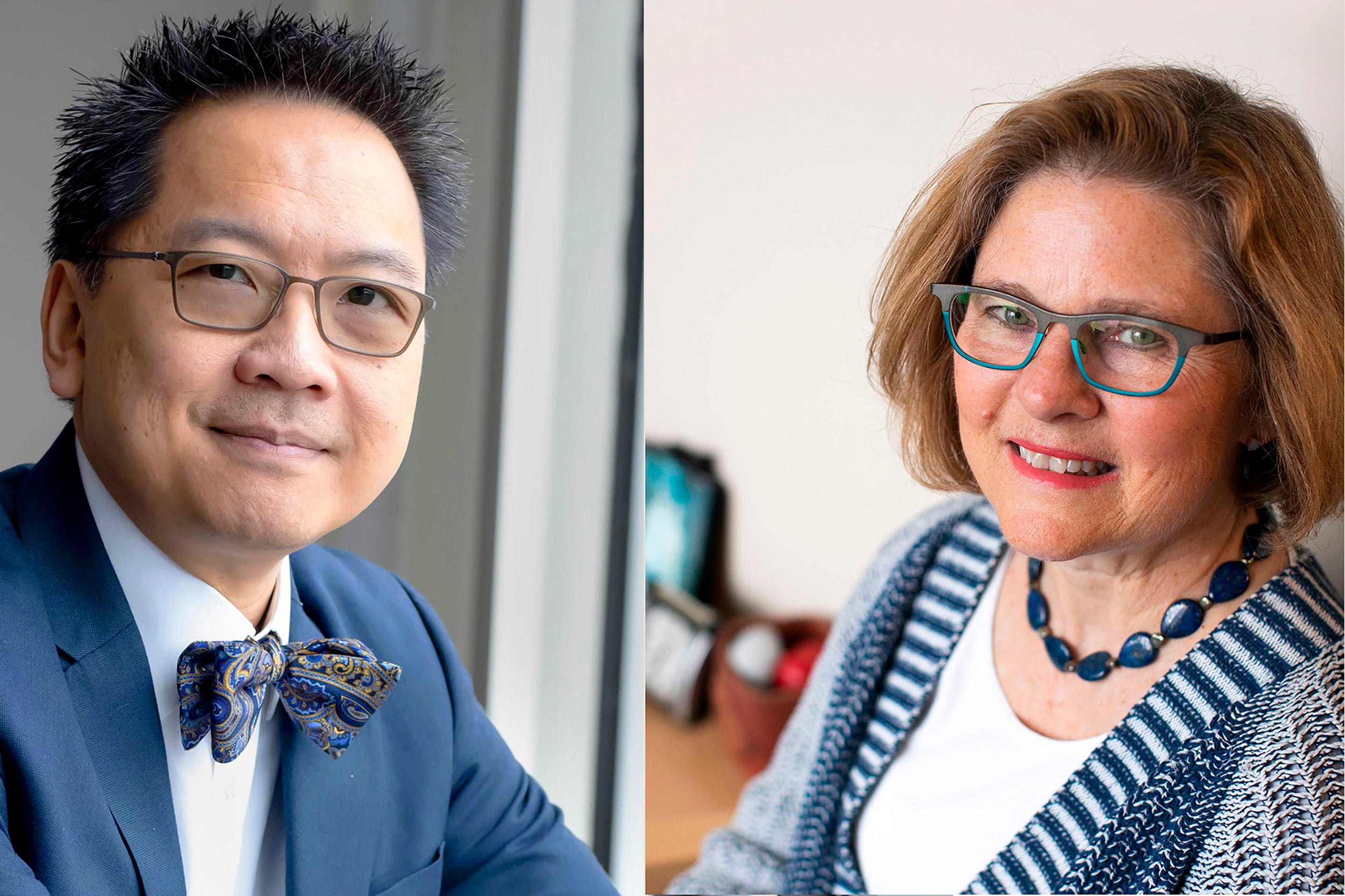
A new mental-health hotline will be available for students across campus.
Kris Snibbe/Harvard file photo
New 24/7 mental-health hotline for Harvard students opens
CAMHS Cares to help with all concerns and questions, whether a crisis or not, on campus or not
Counseling and Mental Health Services (CAMHS) has launched a new 24/7 hotline for students who have mental health concerns or questions of any kind, whether they are in immediate distress or not, on campus or elsewhere. The Gazette spoke with Giang Nguyen, executive director of Harvard University Health Services (HUHS), and Barbara Lewis, chief of Counseling and Mental Health Services, to learn more about the project called CAMHS Cares.
Q&A
Giang Nguyen and Barbara Lewis
GAZETTE: Could you provide us with the context for how the idea for a 24/7 hotline came to fruition?
NGUYEN: This came together through a nice convergence of a good idea and the resources to make that idea happen. Prior to the pandemic, Barbara and I had already been talking about how a 24/7 mental-health hotline could be a critical resource for students. About a year and a half ago, we were approached by Anita Gajdecki, who is the parent of a student who is currently at the College. Ms. Gajdecki was considering a donation to support student mental health care, and we presented her with a list of several projects that were at the top of our list. Over the subsequent year, those conversations solidified, and we were thrilled that she chose to support the hotline option.
GAZETTE: Why is a 24/7 hotline such an important resource for students?
LEWIS: First and foremost, of course, students can reach a licensed counselor at all hours, and it doesn’t have to be a full-blown emergency. A clinician is ready to speak with them in a moment of stress, at a time when they might wish to speak to someone the most. The hotline also serves as an additional triage point regarding mental health and well-being services on campus. The counselor can help the student identify the appropriate resource for them on campus, for example, if they need something beyond just a one-time intervention. The counselor can connect the student back to CAMHS if it’s something that will need in-person urgent or ongoing support; they also might refer the student to the Office for Gender Equity, the Center for Wellness and Health Promotion, or with the Academic Resource Center, depending on the issue at hand.
NGUYEN: When a student decides that they want to speak to someone at CAMHS, it is a great opportunity to provide them with options for care. But sometimes, when we’re not available at the exact moment a student is ready to speak with a professional, that moment goes away. A service like this helps solve that problem.
CAMHS will of course continue to offer traditional in-person and telemedicine care through appointments with our extraordinary clinicians. That won’t change, and it remains a great option for those students who especially want to establish a therapeutic relationship with someone and have multiple interactions with the same counselor over time through traditional appointments. But again, the 24/7 hotline provides an additional avenue in which students can access the care that they need.

GAZETTE: Do you have any further guidance on who should call the line?
LEWIS: I’m glad you asked this. This hotline, reachable at 617.495.2042, is a resource for Harvard students, and any student with a mental-health concern should feel free to call the line at any time. Students can remain anonymous if they choose, although we prefer to know their identity so that we can provide better care. Students should know that our services are confidential, and we only share records with student permission. And students can call about any concern — it doesn’t have to be an emergency.
This is not, however, meant as a source of care for faculty and staff. If faculty and staff have mental health concerns of their own, they should contact the Employee Assistance Program. And it’s also not for physical health concerns. If students have other medical issues, they can contact HUHS and our medical Urgent Care service at 617.495.5711.
NGUYEN: Students, faculty, and staff should also be aware of an additional HUHS resource if they need an electronic way to check in with themselves and explore their current mental state: Anyone can visit the CAMHS website and take an online screening. A student may be wondering, am I feeling anxiety? Is this depression? Should I be worried about my drinking habits? This anonymous screening can be a good place to start. But if a student decides that they really want to talk to someone, that’s when the CAMHS Cares line can be helpful.
GAZETTE: Last summer, the University released a report from a Task Force on Managing Student Mental Health, which had been convened by Provost Alan M. Garber in February 2019. It was tasked with assessing, and responding to, significant increases in both student self-reports of mental-health issues and the subsequent use of related services at Harvard — upticks that reflected a national trend in higher education. Can you talk about how this hotline fits into the report’s recommendations?
NGUYEN: First off, I think it’s important to understand that this new service is part of a broader approach to student well-being that is going to be implemented across the University. It is also critical to remember that emotional wellness is inexorably linked to all other components of well-being: physical, relational, environmental, financial, spiritual, vocational, and intellectual wellness. Additional well-being resources are forthcoming, including health promotion programs, peer education, and student-led efforts such as Active Minds. And we will expand efforts to perform community-needs assessments and to respond to those identified needs.
Specifically, the Task Force report did recommend exploring ways of expanding access to mental-health services, which the CAMHS Cares hotline certainly does.
GAZETTE: I imagine that launching during the summer, with fewer students on campus, gives you a chance to begin to assess the types of calls coming in and to perfect how you provide services via the hotline. Anything you’d add as to how you plan to assess the work of the hotline moving forward?
leWIS: There will certainly be a component of assessing the student experience using this service. The data will be critical to help best connect students to resources moving forward. It’s also important in that the donation to support this hotline is for five years. We’re hopeful of course that this could be extended beyond that time, especially if students take advantage of the hotline as we hope they do. Understanding the volume of calls will be critical toward ensuring the hotline remains an option for years to come.
The number to call to be connected to a licensed CAMHS Cares counselor is 617.495.2042. This interview was lightly edited for clarity and length.




